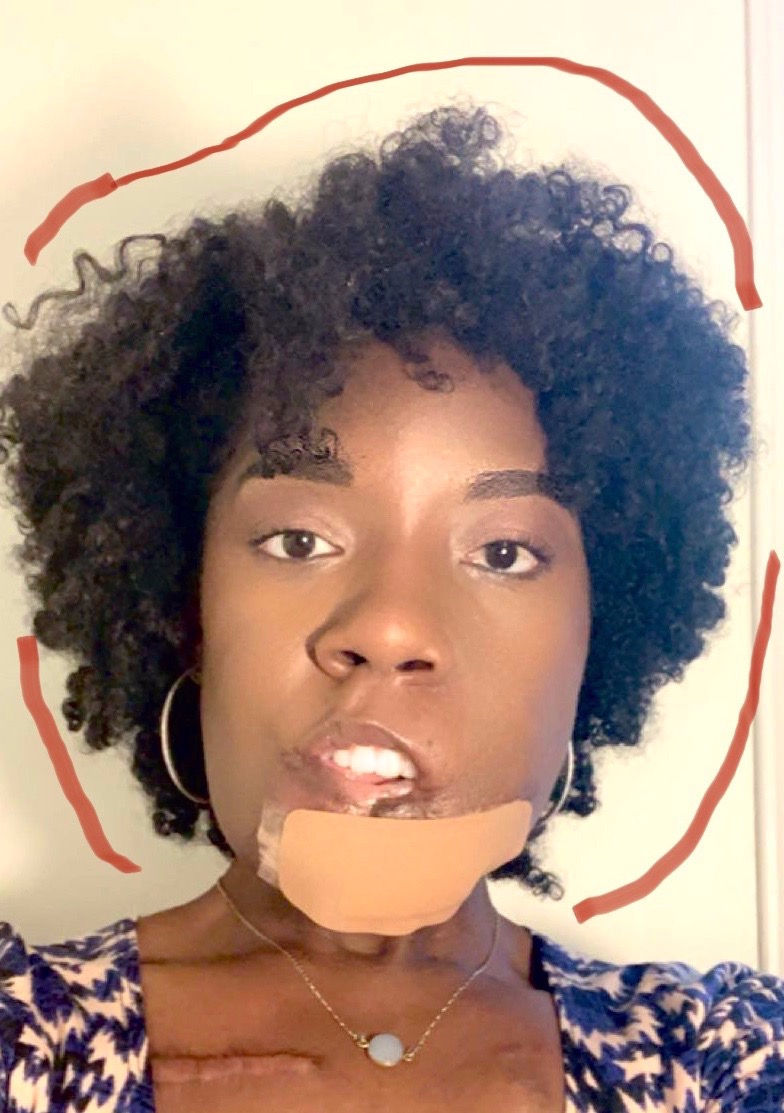A Joy Ride
- Jaz Gray
- Aug 21, 2022
- 7 min read

Along the freeway between Paris and Versailles, trees lined the road, reminding me of any Tennessee countryside. Tall and thick with emerald green leaves, they waved in the breeze. I sat in the back of a Black Lincoln-esque vehicle with shiny leather seats, freshly vacuumed carpet, and windows partly down. I had ordered the standard UberX and was pleasantly surprised when a French man pulled up saying he was my ride on this afternoon of leisure between academic conference sessions. The forcast often called for rain in this part of France. However, that day, the sun was shining through tree branches and warming my skin as we traveled along. The sound of bossa nova jazz coming from the car speakers inside my ride blended perfectly with the rhythm of the car wheels outside. For what might have been the first time since last summer, I was completely relaxed.
Jesus Year

This past year was my 33rd year of life. Considering the health dramas surrounding past birthdays, I was just excited to not be celebrating from a hospital bed. Christians often call year 33 the “Jesus Year.” Religious scholars believe Jesus was thirty-three when his work reached its apex. He was fully immersed in meaning and purpose, opposing the powerful and countering the culture of his day for the sake of something bigger than himself. While his physical life was cut short, his ministry was fulfilled.
For me, it was the year of being almost mid-thirties navigating a new level of growth personally and professionally that, honestly, felt overwhelming. I had unanswered questions about how to walk out my purpose in this new season, how to both guard and give my heart appropriately in my relationships, and how to navigate career change in the midst of a whole pandemic. I don’t know what I expected the answers to be, maybe something about enjoying success, staying humble, or remaining driven. What I learned this year included but went beyond these well intended reminders. Maybe the conclusion of the matter is too simplistic, a mere ideal. Or maybe it’s too difficult to translate into sustainable practice. Either way, it all started with a realization about myself.
A Burial
I have carried three internal dispositions within me that have sporadically showed up and showed out during times of distress or trauma. They could distort my perspective, distract my focus and extort my peace. They could turn mundane irritations into emotional mountains, twist seasons of suffering into a life riddled with disappointment. Their names are fear, stress, and anxiety. Fear has been my oldest foe. We have done battle since childhood. I can still remember my aunt praying, “God has not given us a spirit of fear” over the phone as I writhed in pain after a surgery as a kid. Stress was in fear's right hand like a weapon, magnifying my problems, diminishing my unused ammunition - my faith in God, His words, His strength. Yet, as I grew in age and in spiritual maturity, I was able to study the ways fear and stress presented themselves and wield my spiritual weapons expertly in opposition.
Now in my thirties, fear and stress have come back with a vengeance through a new avenue - anxiety. Ignited by stress and rooted in fear, the physical expressions of anxiety have been visceral. It can squeeze your heart, shorten your breathing, paralyze your body and more (check the passionate spoken word by artist K. Love the Poet on surviving an anxiety attack). It gripped me throughout year 33 in ways that almost caused me to miss the blessings of God’s provision, faithfulness, and foresight in my life. Well, as I enter year 34, I have realized that all three - fear, stress, and now anxiety - must die in order to birth a version of myself that can properly navigate this new season.
An Awakening

My new career path provides at least a glimpse into how important it has become for me to internalize this shift in perspective in every area of my life. See, the day-to-day life of an early career professor is in many ways uncertain, uncontrollable, and unpredictable. There are the logistical expectations: thoroughly understanding the material and then organizing the various elements of each course including discussions and activities, readings and assignments; and the social expectations: interaction with students, engagement with colleagues and administration, and a range of outside service obligations. Finally, there is an unspoken amount of time to somehow get it all done. And I desperately wanted every class period in each of my courses to be well-paced, expertly planned, and smoothly executed. I pressured myself to be considered profoundly knowledgeable, quick-witted, and highly prepared. Looking back, the year went extremely well. But I was forced into a new realm of faith, not relying on the attributes that usually made me feel capable and in control.
For example, I taught a course called “Perspectives on Identity” last semester. In that course, we discussed a range of social identities including race, gender, sexuality, class, ability, and age from both a critical lens and a Christian value system. I could spend twelve hours planning for a single class or an entire weekend preparing for the upcoming week. I could agonize over my capacity to facilitate learning about these topics (some of which I am still grappling to reconcile intellectually, emotionally and spiritually). I could easily over analyze whether I was as evolved and open as I needed to be, whether I could create a safe space that prioritized my love for my students, or whether God was pleased with an approach I had planned. And still, I was unable to anticipate what conversations, perspectives, challenges, and opportunities would arise. I was not in control of the outcome in any given circumstance. And I was unable to see that certain qualities disconnected from any degree or formal training were actually providing the unexpected soft skills that made me effective with my students, like flexibility, accountability, resourcefulness, thoughtfulness, fortitude, and most importantly, compassion.
By the end of my first semester, I had to visit a chiropractor because the tension in my back had tied like knots in between my shoulder blades. By the end of the academic year, all too often, my meditative, devotional drive to campus in Malibu became side tracked by a tight chest. I could not simply enjoy the Pacific Ocean on my left and the Santa Monica Mountains on my right because my heart was racing, consumed with what could lie ahead. In hindsight, this embodied anxiety was due to stress that was self-inflicted (in the words of my dear sis, Iyanla Vanzant, “You have to call a thing a thing, Beloved!”). The bottom line was, I could not worry my way out of going through my current process. It was like trying to fight those massive waves I saw crashing against the shore as I peaked out my driver’s side window. As the water pushed and pulled the most seasoned surfers, washing over the entire bodies like a baptism, they neither sunk nor swam. They simply floated, resolutely, knowing from experience they could weather the tide, literally.
Perfect Peace

I was apprehensive about writing this post. Honestly, it was not as fun to put together and took a lot longer. The structure was not as seamless, and the words were not as poetic as the pieces I’ve crafted previously. And I believed that those reading would have one of two responses: either question how a person of faith could be subsumed by stress or sidestep the sustainable solution I landed on.
In a sermon I heard recently on stress management, a preacher, Jerry Flowers, discussed five types of stress and keys to overcoming them. Hilariously, he gave those of us who have struggled a little grace by declaring that self-induced stress actually shows the creativity of our human minds. “Look how innovative you are,” he said earnestly, “you have thought of a horrible outcome and are physically preparing for it.” “You sayin’ you stressed,” he declared, “and it hasn’t even happened yet.” The knowing laughter of the audience filled the room. Later, almost as a throwaway line, Flowers mentioned one specific scripture - Isaiah 26:3. My earlier giggle turned to a gulp. “Why do I know that verse?,” I asked myself. Well, back in January, after my first semester teaching and before the start of the second, I had written down verses that I wanted to guide my thoughts in 2022. Somehow forgotten in the height of my quest to prepare and control this year, a baby blue sticky note is still stuck to the front flap of my planner. In bold black ink, there it is - Isaiah 26:3. “You will keep in perfect peace all who trust in you. All whose thoughts are fixed on you.”
Release. That’s the feeling when the Truth of this verse can travel from my mind to my heart, stilling my soul. It becomes a prayer as I say it in conversation with God. And there is a power in prayer, particularly those of praise and thankfulness, to combat fear, stress, anxiety and any other adverse mental state. All of the other coping skills I have developed naturally or learned through therapy can only compliment rather than replace it. In fact, even researchers attest to prayer and meditation’s capacity to calm our fight or flight responses. Dr. Paul Hokemeyer, a marriage, family and addictions therapist says, "They are powerful because they focus our thoughts on something outside ourselves.” T.D. Jakes explains that prayer is uniquely designed to quiet the multitude of voices in our minds and render us, even for a moment, single-minded and single-hearted. And I am taken back to me in that Uber on the freeway in northern France.

The whirlwind of both my first year as a professor and my 33rd year of life had culminated in a nine hour flight to present my dissertation research in Paris. Afterward, God blessed me with a simple moment I did not know I needed, a joy ride on a sunny day far away from the cares of my daily life. It was the kind of pleasure I would not have planned for myself. That brief respite from the weight of striving to do meaningful work well, it felt curated especially for me. I felt loved. And that feeling made me want to spend time with God in gratitude. I went to open my Bible app but realized that, every time I looked down at the screen, I missed the view out of my window. Instead, I turned the phone off. I sat back. Stretched my legs. Closed my eyes. Breathed deeply. Relaxed into the reverence of just being fully present. A resting mind and a worshiping heart. God and I, riding side by side to the Garden of Versailles.





Comments